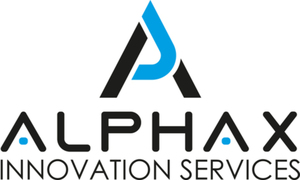Mobile applications have become a must for any business that wants to succeed in this modern world. The mobile applications allow users to access your products or services anywhere, anytime at the tip of their fingers. Several trends have emerged concerning mobile applications. The two most important of these are native and hybrid applications. Let’s take a closer look at them!
What is a native application?
A native application is an application that is specifically designed for a specific operating system e.g. iOS or Android. The application is developed within a mature ecosystem in compliance with technical guidelines and usability guidelines. Typically, the following languages are used:
- For Android: Kotlin and Java
- For iOS: Swift and Objectiv-C
What are the advantages?
As mentioned earlier, since the application follows the guidelines of the respective operating system, it not only has the advantage of faster performance and higher quality, but it also feels “right”. This means that the in-app usage is consistent with most other native applications on the user’s device. Therefore, he or she is more likely to quickly learn how to navigate the app.
Native apps also respond better to mobile devices and users can easily access the device’s built-in features such as GPS, address book, camera, and push notifications. Plus, it’s easier to test, debug, and maintain them. After all, it is the best choice if you only want to target iOS or Android users.
What are the disadvantages?
However, in reality, most businesses have both Android and iOS users among their customers. Therefore, when developing native apps, these companies need to develop two separate native apps. In addition, developing native apps is time-consuming and costly. As an alternative, companies can consider hybrid applications.
What is a hybrid application?
Hybrid applications are developed for both Android and iOS devices. The front-end is programmed only once and, unlike native apps, can be used for multiple operating systems.
Hybrid applications feel like native applications, but at their core, they are web apps wrapped in a native app container. Unlike native apps, which load most of the information when the user downloads the app for the first time, hybrid apps load the information on the page as the user navigates through the app. Their content is fed by the company’s website. Different frameworks such as Flutter, React Native or Ionic can be used for the hybrid apps.
What are the advantages?
The most obvious advantage is the scalability of hybrid apps: they can cover the entire market (IOS, Android and also web users). The same source code can be shared between two different platforms. Therefore, the development process is shorter. Plus, they’re more affordable for businesses.
Hybrid apps are easy to maintain because they are known to use a simple HTML language. If there are bugs in the app, the changes can be implemented by updating without the need for approval from the App Store. The changes are immediately displayed in the app.
What are the disadvantages?
The biggest drawback is the fact that hybrid apps have lower performance and speed than native apps. This is due to the layer that lies between the operating system and the source code. Therefore, the user experience may be worse than the native apps one.
As for features, hybrid apps may not have as many in-app features as native apps (e.g., camera, GPS, etc.). Although this has improved over time through the development of the corresponding platforms such as React Native, the native apps are still better in terms of compatibility with the operating system. As a result, users cannot expect the maximum level of quality and stability from hybrid apps.
Finally, it is harder to debug the app and find the problem because the code is written for multiple platforms.
Why choose alphaX for mobile app development?
The company works with the customer’s idea to turn it into a well-crafted concept and then create a product that meets all requirements.
- We conduct thorough research to reveal the niche of the potential product in the market, the competitors and the ways to outperform them;
- We are working with experts for most languages and frameworks (Swift, Kotlin, React Native, Ionic, Xamarin, Flutter …) which are necessary to develop hybrid and native mobile apps.
- The UI/UX design can also be taken over by our design experts before and during development;
- Quality Assurance: We thoroughly test the application both during development and before final approval;
- The documentation will be compiled and presented for future references;
- We offer you a free initial consultation.
Please visit our page for more information.

